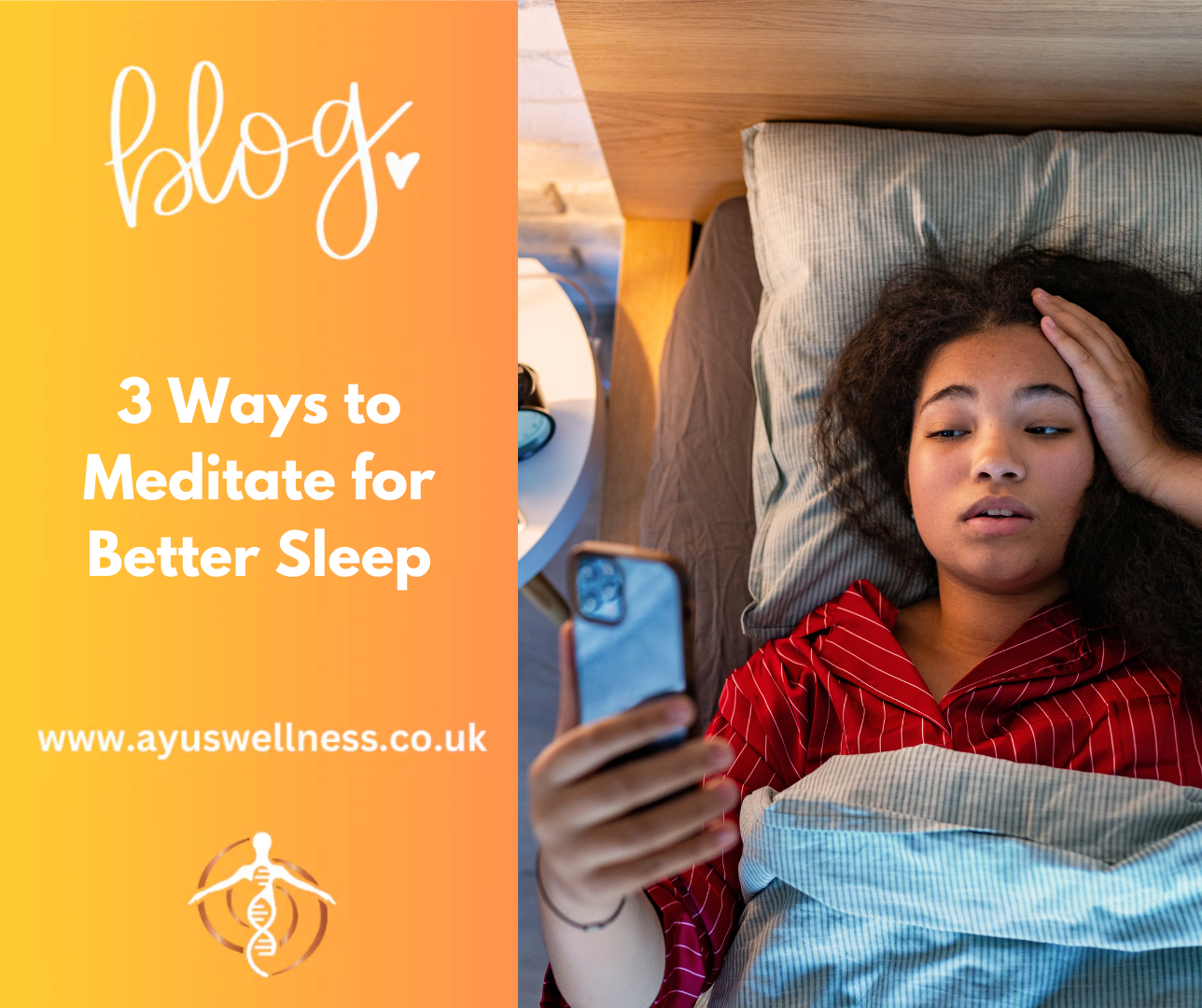
Sleep is essential to our well-being, yet it eludes millions of people every night. Stress, anxiety, and lifestyle factors often disrupt restful slumber, leading to insomnia or poor-quality sleep. Thankfully, meditation offers a natural way to quiet the mind and prepare the body for rest. Whether you’re struggling to fall asleep or stay asleep, meditation can help you create a tranquil bedtime routine.
This article explores three effective meditation techniques to enhance sleep: mindfulness meditation, guided meditation, and body scan meditation. Additionally, we’ll delve into how meditation promotes better sleep, its broader benefits, and any potential risks.
How to Meditate for Better Sleep
Meditation is a straightforward practice that can be performed anywhere, anytime. It requires no fancy tools—just a few moments of quiet and a comfortable space.
Here’s how to start meditating:
-
Find a peaceful area: Create a distraction-free environment. At bedtime, lying down can be more conducive to relaxation.
-
Close your eyes and focus on your breath: Take slow, deep breaths, inhaling and exhaling with intention.
-
Acknowledge intrusive thoughts: When distractions arise, gently guide your focus back to your breath.
Begin with just 3–5 minutes a night, gradually extending to 15–20 minutes. With consistent practice, you’ll find it easier to still your mind and enjoy the benefits of meditation.
Mindfulness Meditation for Sleep
Mindfulness meditation centers on staying present and aware, cultivating a sense of calm. By focusing on the here and now, this technique helps you let go of racing thoughts or worries.
Steps for Mindfulness Meditation
-
Settle into a distraction-free room and lie down comfortably.
-
Focus on your breathing. Inhale for 10 counts, hold for 10, and exhale for 10. Repeat this pattern five times.
-
Scan your body for tension and relax each part consciously.
-
Allow thoughts to pass without judgment, returning focus to your breath.
Mindfulness meditation not only aids sleep but also builds resilience against stress and improves overall mental clarity.
Guided Meditation for Sleep
In guided meditation, a voice—either live or pre-recorded—leads you through the practice. It might involve breathwork, muscle relaxation, or visualization exercises. This method is particularly helpful for beginners who find it challenging to meditate independently.
How to Practice Guided Meditation
-
Select a trusted recording via an app, podcast, or streaming platform.
-
Dim your device’s screen light and prepare to relax.
-
Follow the guide’s instructions while lying comfortably in bed.
-
If your mind drifts, gently refocus on the guide’s voice.
Guided meditations are available for various purposes, including sleep, stress reduction, and mindfulness, offering versatility and accessibility.
Body Scan Meditation for Sleep
Body scan meditation involves progressively focusing on different parts of the body, releasing tension and promoting relaxation. This heightened awareness often mimics the natural progression of falling asleep.
Steps for Body Scan Meditation
-
Lie down in a quiet, comfortable space.
-
Begin by noticing the weight of your body on the bed.
-
Focus on relaxing each part of your body, starting with your face, then moving to your neck, shoulders, arms, torso, legs, and feet.
-
If your attention wanders, return it gently to the scan.
This method not only helps with sleep but also improves your connection to your physical sensations, fostering mindfulness and inner calm.
How Can Meditation Help with Sleep?
Meditation triggers physiological changes that prepare the body for rest. Here’s how:
-
Boosts melatonin levels: Meditation encourages the production of melatonin, the hormone that regulates sleep.
-
Promotes serotonin release: Serotonin, a precursor to melatonin, is also stimulated, further aiding sleep.
-
Reduces heart rate and blood pressure: Relaxation achieved through meditation mirrors the body’s natural pre-sleep state.
-
Calms the mind: By reducing ruminative thoughts and emotional reactivity, meditation sets the stage for restful sleep.
Scientific research supports these claims. A 2018 meta-analysis of 18 studies found that mindfulness meditation significantly improved sleep quality, even months after intervention.
Benefits of Meditation Beyond Sleep
Regular meditation provides a wealth of benefits, including:
-
Improved mood and emotional balance
-
Reduced stress and anxiety
-
Enhanced focus and cognitive function
-
Better management of chronic pain and blood pressure
-
Strengthened heart health and reduced inflammation
Incorporating meditation into your daily routine can transform your mental and physical health.
Are There Any Risks?
While meditation is generally safe, it may not suit everyone. Rarely, individuals with certain mental health conditions might experience adverse effects like increased anxiety, depersonalization, or intense mood changes. If you have concerns, consult a healthcare provider before beginning a meditation practice.
Takeaway
Meditation is a powerful tool for improving sleep, particularly for those dealing with stress and insomnia. Techniques like mindfulness, guided, and body scan meditation can help create a bedtime routine that promotes relaxation and better sleep quality.
However, meditation is most effective when combined with good sleep hygiene. Maintain a consistent bedtime, limit screen time, and ensure your sleeping environment is cool, quiet, and dark. With regular practice and a holistic approach, you’ll find yourself drifting into restful sleep with ease.
FAQs
What is the best meditation technique for beginners to improve sleep?
Mindfulness meditation is an excellent starting point, as it involves simple breathing and relaxation techniques that can easily be adapted to any skill level.
How long should I meditate before bedtime?
Start with 3–5 minutes and gradually work up to 15–20 minutes to allow your body and mind to adjust to the practice.
Can meditation replace other treatments for insomnia?
Meditation is a helpful complementary tool, but it should not replace medical advice or treatments for chronic sleep disorders.
Is it okay to meditate lying down?
Yes, especially for bedtime meditation, as lying down promotes relaxation and prepares your body for sleep.
Are meditation apps effective for guided meditation?
Absolutely. Apps like Calm and Headspace provide high-quality guided meditations tailored to various needs, including sleep.
Can meditation improve sleep quality in the long term?
Yes. Studies show that consistent meditation practice can significantly improve sleep quality over time.



